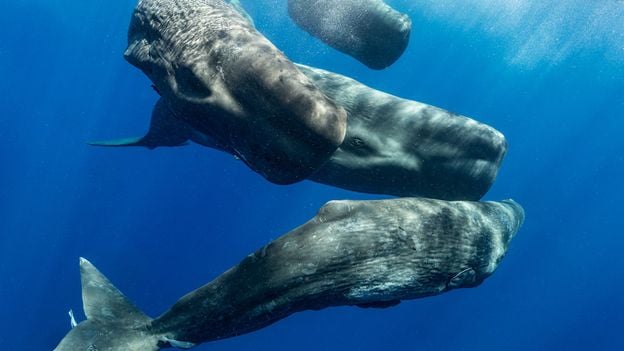- cross-posted to:
- vegan@lemmy.world
- cross-posted to:
- vegan@lemmy.world
Sperm whales communicate with each other using rhythmic sequences of clicks, called codas. It was previously thought that sperm whales had just 21 coda types. However, after studying almost 9,000 recordings, the Ceti researchers identified 156 distinct codas. They also noticed the basic building blocks of these codas which they describe as a “sperm whale phonetic alphabet” – much like phonemes, the units of sound in human language which combine to form words.
Pratyusha Sharma, a PhD student at MIT and lead author of the study, describes the “fine-grain changes” in vocalisations the AI identified. Each coda consists of between three and 40 rapid-fire clicks. The sperm whales were found to vary the overall speed, or the “tempo”, of the codas, as well as to speed up and slow down during the delivery of a coda, in other words, making it “rubato”. Sometimes they added an extra click at the end of a coda, akin, says Sharma, to “ornamentation” in music. These subtle variations, she says, suggest sperm whale vocalisations could carry a much richer amount of information than previously thought.



This almost certainly means using traditional machine learning algorithms against a massive corpus of whale vocalizations and descriptions.
Probably unsupervised learning, specifically! So maybe some kind of k means clusters based off characteristics of the sounds
edit: got it in one baybee